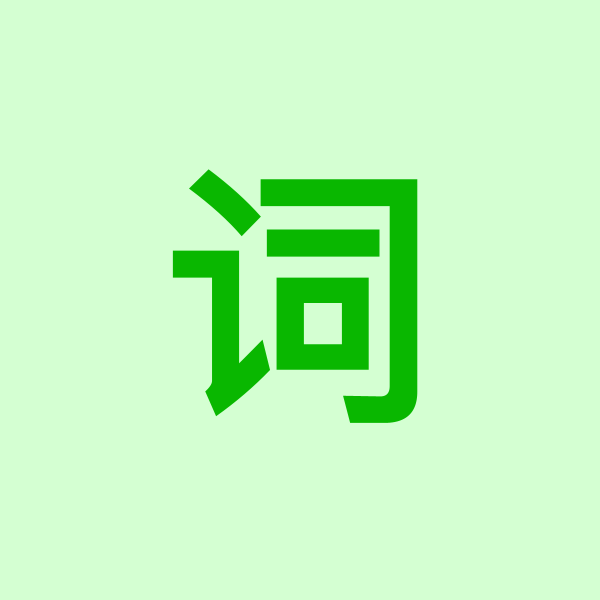
英语单词大百科
**单词main**
**音标**:
英 [meɪn];美 [meɪn]
**中文释义**:
名词(n.):(输送水、煤气等的)总管道,主管道;(the mains)(水、电等的)供应,供应系统;电源插座;海洋,公海;主帆(mailsail的简称);(掷骰子游戏中)叫数;斗鸡比赛;(美)梅因(人名)。
形容词(adj.):主要的,最大的,最重要的。
**单词起源**:
“Main”一词的起源可以追溯到中世纪英语,它源自中古拉丁语“magna”的变体,意为“大的”或“主要的”。随着语言的演变,“main”逐渐成为了现代英语中表示“主要的”或“最重要的”这一概念的常用词汇。
**单词详细讲解**:
作为形容词时,“main”常用于描述某事物或现象的主要部分或特征,强调其重要性或显著性。作为名词时,它则指代某个系统或结构中的主要部分或组件,如水、电等供应系统的主管道,或计算机程序中的主要函数等。
**助记技巧**:
1. 联想记忆:可以想象一条“主要的”水管(main pipe)是家中供水的“主干线”。
2. 词根词缀法:虽然“main”本身不是由词根和词缀构成的,但可以将其视为一个整体进行记忆,并联想其常见的搭配和短语。
3. 归类记忆:将“main”归类为表示“主要的、重要的”这一类的形容词中,与其他类似词汇如“primary”、“chief”等一起记忆。
4. 场景记忆:想象在一个大型公司中,“main”部门通常是负责核心业务的部门,强调其重要性。
5. 歌曲记忆:可以编写一首简单的歌曲或旋律,将“main”的发音和含义融入其中,帮助记忆。
**常用词组**:
1. main street 主街
2. main course 主菜
3. main body 主要部分
4. main idea 主要思想
5. main character 主要人物
**词根词缀及记忆方法**:
“main”本身是一个基础词汇,不包含明显的词根或词缀。在记忆时,可以将其视为一个整体进行记忆,并关注其常见的搭配和短语。同时,可以通过归类记忆和场景记忆等方法来加深对其含义的理解和应用。
**单词造句**:
1. The main entrance to the building is on the right side. (建筑物的主入口在右侧。)
2. The main character in the novel is a brave detective. (小说中的主要人物是一位勇敢的侦探。)
3. My main concern is the safety of my family. (我最关心的是家人的安全。)
4. The main street of the town is always busy during the holidays. (镇上的主街在假期期间总是很繁忙。)
5. The main purpose of this meeting is to discuss the budget. (这次会议的主要目的是讨论预算。)
**名著小说中含有该词的句子**:
1. **出处**:《傲慢与偏见》(Pride and Prejudice) by Jane Austen
* **句子**: "It is a truth universally acknowledged, that a single man in possession of a good fortune, must be in want of a wife." —— The main character, Elizabeth Bennet, ponders this statement.
* **翻译**:“凡是有钱的单身汉,总想娶位太太,这已经成了一条举世公认的真理。”——主人公伊丽莎白·班纳特思考着这句话。
2. **出处**:《双城记》(A Tale of Two Cities) by Charles Dickens
* **句子**: "It was the best of times, it was the worst of times, it was the age of wisdom, it was the age of foolishness, it was the epoch of belief, it was the epoch of incredulity, it was the season of Light, it was the season of Darkness, it was the spring of hope, it was the winter of despair, we had everything before us, we had nothing before us, we were all going direct to Heaven, we were all going direct the other way——in short, the period was so far like the present period, that some of its noisiest authorities insisted on its being received, for good or for evil, in the superlative degree of comparison only." —— The main theme of the novel is captured in this opening sentence.
* **翻译**:“那是最美好的时代,那是最糟糕的时代;那是智慧的年头,那是愚昧的年头;那是信仰的时期,那是怀疑的时期;那是光明的季节,那是黑暗的季节;那是希望的春天,那是失望的冬天;我们全都在直奔天堂,我们全都在直奔相反的方向——简而言之,那时跟现在非常相像,某些最喧嚣的权威坚持要用形容词的最高级来形容它。说它好,是最高级的;说它不好,也是最高级的。”——小说的主题在这句开场白中得到了体现。
3. **出处**:《了不起的盖茨比》(The Great Gatsby) by F. Scott Fitzgerald
* **句子**: "In my younger and more vulnerable years my father gave me some advice that I've been turning over in my mind ever since." —— The main character, Nick Carraway, reflects on his past.
* **翻译**:“在我年纪还轻、阅历尚浅的那些年里,父亲曾给过我一句忠告,这些话至今还回荡在我的脑海里。”——主人公尼克·卡拉威回想起自己的过去。
4. **出处**:《简·爱》(Jane Eyre) by Charlotte Brontë
* **句子**: "I am no bird; and no net ensnares me: I am a free human being with an independent will." —— The main character, Jane Eyre, asserts her independence.
* **翻译**:“我不是鸟,也没有网罗住我;我是个有独立意志的自由人。”——主人公简·爱声明自己的独立。
5. **出处**:《悲惨世界》(Les Misérables) by Victor Hugo
* **句子**: "There is nothing like a dream to create the future." —— This quote captures the main theme of hope and redemption in the novel.
* **翻译**:“没有什么比梦想更能创造未来了。”——这句话捕捉到了小说中关于希望和救赎的主题。
请注意,以上名著小说中的句子及其出处和翻译仅供参考,具体表述可能因版本和翻译者的不同而有所差异。